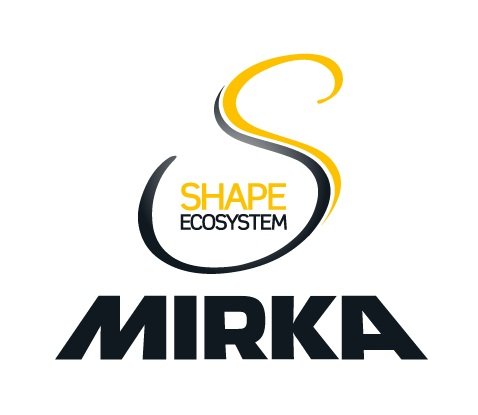Competences Needed for the Green Transition
Author: Maria Smeds-Engström, Project Manager at the SHAPE Ecosystem.
It's safe to say that we're all crucially aware of the need to build a more sustainable tomorrow. In this transition, industries play an important role - along with the individuals working within them.
The people entering and working in these industries hold a significant responsibility, as they are the ones who will drive the transformation. Employees possess the power to enable and contribute to transformational change. When we talk about transformational change, we’re referring to large-scale, comprehensive shifts - radical and fundamental overhauls of business models, technologies, strategies, and ways of working. This is not about incremental improvements or minor process adjustments. Transformational change reshapes how organizations operate and creates new organizational cultures.
But what about those leading this change? What roles do individuals play in driving the green transition within industries? Can employees truly act as changemakers? What knowledge, skills, and competencies are necessary to enable this transformational shift?
Employees are at the heart of transformational change within companies. For such change to succeed, employees must understand why the change is essential and possess the knowledge to support it. In the context of the green transition, it is crucial for employees to comprehend why sustainability is on the agenda, recognize the importance of sustainable development, and see how their actions, skills, and behaviors contribute to the bigger picture. And this goes for both old and new employees.
However, transformational change is rarely straightforward. Declaring employees as changemakers is only the beginning. For many, this transition will also involve a personal transformation - shifting how they approach their roles, responsibilities, work habits, behaviors, and even their mindset, values, and attitudes.
Photo by Hendrik Morkel on Unsplash.
This is why I want to explore the competencies required for the green transition, particularly for those about to enter the workforce. As you prepare to write your thesis, complete your studies, or step into your professional lives, this text aims to inspire and equip you for the future. Based on my experience and frameworks such as the GreenComp (the European sustainability competency framework) and the Inner Development Goals (transformational skills for sustainable development), I’ve identified six key competencies essential for driving sustainability and transformational change. So besides all the fresh knowledge and skills that you have, think about how they can be combined and support the competences needed in the green transition.
1. Growth mindset
In these challenging times, we need optimism - people who view challenges as opportunities to learn and grow rather than obstacles. Resilience is key: the ability to bounce back from setbacks while staying focused on long-term goals. For the green transition, this mindset must also embrace empathy, responsibility, and care for the planet and public health.
2. Systems and futures thinking
Navigating the green transition requires understanding complex systems and planning for future challenges. This involves holistic views, interconnected thinking, and the ability to anticipate and prepare for future scenarios. These competences are crucial for navigating uncertainty and driving sustainable change, since it helps individuals and organizations to not only react to changes, but to proactively shape the future. It blends creativity with data-driven analysis to turn ambiguity into opportunities and prepare for the unknown.
3. Proactive and responsible action
In the green transition, we need people with action competence and courage. Action competence involves key competences like critical thinking, decision-making, implementation and evaluation. It’s also about being proactive, innovative and taking action. We need people who are proactive and take initiatives to identify and solve problems, who are open to new ideas and willing to experiment with different approaches and have the courage to drive change.
4. Emotional Intelligence
Emotional intelligence refers to the ability to recognize, understand, manage, and effectively use emotions in ourselves and others. It’s about:
Self-awareness and management: Understanding your strengths, weaknesses, and how your emotions affect you.
Empathy or social awareness: Understanding and sharing the feelings of others, like colleagues, fostering a supportive environment
Relationship management: Communication, conflict resolution, influence and teamwork, building strong relationships.
These are important things to be aware of, as they help managing and navigating change, both on a personal and organizational level. Never stop being curious about yourself and others!
5. Collaboration and networking
This is a key to the future, if you have the ability to network and collaborate – use it! Building strong relationships and actively engage with colleagues, mentors, and industry professionals to build a strong network. It’s about sharing knowledge, ideas, feedback and resources and to enable co-innovations, interdisciplinary approaches, holistics solutions and creative problem-solving. Collaborate to build trust, co-create, scale and resolve conflicts. No one is an island in the green transition.
6. Adaptability
Continuous learning, the willingness to learn, up- and reskilling, and personal development, is and will be needed in the age of the green transition as well as flexibility and open-mindedness. Having the ability to embrace diverse perspectives and be willing to change your approach based on new information is important in a world that spins faster and faster. So stay curious and be willing to learn new skills and knowledge along the way.
I’ll end this text with two additional points:
Leadership and Influence: Lead by example to inspire others. Use your skills and position to advocate for positive change, demonstrating the attitudes and behaviors needed for the transition.
Balance: Prioritize mental and physical well-being alongside professional responsibilities to maintain the best version of ourselves.


